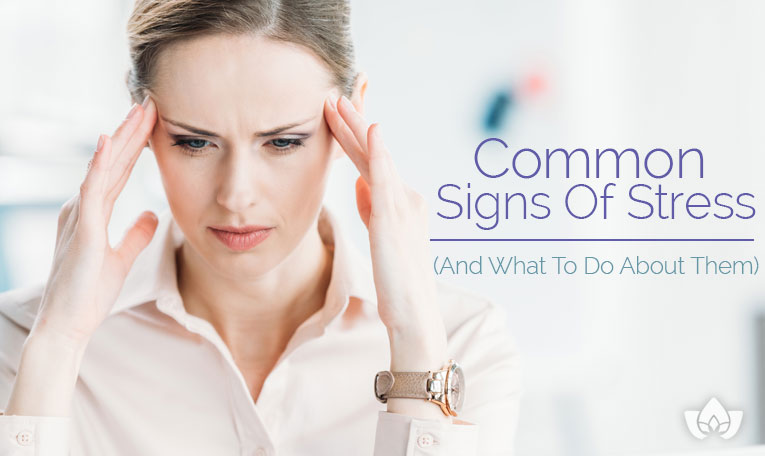
Imagine you're a cop in an action movies.
You're right outside the apartment of the most dangerous drug lord in town and his goons, waiting for back up.
Any moment someone will come out and see you.
Those guys, they hate cops. They'll shoot you dead on sight – if you're lucky.
Unless you get them first.
Your muscles tense up, readying you to run like a fiend at the slightest noise.
Your blood pulses in your veins, your heart is a drum in your ears.
You're panting like an animal hungry for the chase.
Your body dampens down everything else, attunes the entirety of its resources to a single purpose: getting you out of this alive.
Now, imagine feeling like this all the time.
The fight-or-flight response works great for the situation above.
Not so well for your midterms.
In my practice as a naturopathic doctor for stress management, I have helped many patients reduce stress and improve mental and physical wellbeing.
Today I'll share with you some of what I've learned on stress and how to mitigate its harmful effects.
What is stress, and why it can be bad for us?
The biological purpose of stress is to help an organism survive by forcing it to adapt quickly to any physical or environmental pressure.
Acute stress involves an urgent, quick danger that activates the fight-or-flight response of our sympathetic nervous system.
This system redirects our energy to the bodily systems most useful for fighting or escaping.
But what happens when that response gets overextended?
Chronic stress involves continuous activation of the fight-or-flight response.
That means that physical changes meant to last a short time become overextended.
Things like an unhappy marriage, poverty, childhood trauma, major life events, or a high-stress job can cause chronic stress.
But even smaller, daily stressors can lead to chronic stress.
What does the fight-or-flight stress response consist of?
Hormones such as adrenaline, noradrenaline and cortisol are released, causing the following:
Elevated blood pressure and pulse rate
Weakening of immune system
Muscle tension
Deceleration of the digestive system
Heightened alertness which prevents sleep.
Quickened breath
These changes will raise your risk of stroke or heart attack.
Other hormones released, like norepinephrine, can affect the brain by acting like neurotransmitters.
This can cause mood swings, poor concentration, anxiety and depression.
These are some of the most common symptoms people with chronic stress complain about:
Insomnia
Headaches
Fatigue.
What are the best ways to reduce stress and its negative effects?
Prioritizing
If your stress is the result of work overload, it's important to become more selective about your tasks.
Rate your tasks by importance and by benefits.
Which tasks take long, yet produce little utility?
Try to forfeit some of those tasks.
Not everything is important.
Which time-consuming tasks can be delegated to a person or an affordable service that will do them for you?
For example, the app Fiver allows you to hire people for miscellaneous tasks for just a few dollars.
Which tasks take long because of inadequate technology?
Do you spend a lot of time waiting for your old computer to process every task?
Consider replacing it.
Consider buying software that will automate some of your tasks; your time is a resource, and this change may pay off in the long term.

Cognitive restructuring
cognitive restructuring is a psychotherapeutic technique that involves learning to identify and refute maladaptive or irrational negative thoughts, and replace them with more realistic ones.
It can help you fight overly-pessimistic expectations that lead to stress.
Take a look at a task or event that's causing you anxiety, and think about the following questions:
What are the possibilities you fear?
What is the likelihood of each actually occurring?
Have those fear been substantiated in similar past situations?
How horrible would it be if the thing you fear actually came true?
Put your fear in perspective. How does it compare to other, more terrible possibilities, such as losing a loved one?
How well did you cope or recover after a past occasion where this fear was realized
At the end of the exercise, prepare a coping statement that will include what you've learned.
Keep it with you as a note, and reread it whenever you become anxious about that task or event.
Progressive muscle relaxation
Progressive muscle relaxation (PMR) is a great method to relax the tension in your body.
It can help with tension-related head and back pain.
This is how PMR works:
Lie on your back on a surface such as a bed or a carpet, and stretch out until you're comfortable.
Take a breath, and tense one muscle group for 4-10 seconds (you can start anywhere). The tensing should be strong, but not painful.
Release the air, then relax the muscle group you were tensing all at once.
Wait 10-20 seconds before continuing to another muscle group. In the meanwhile, pay attention to the difference in how the first muscle group feels.
After you're done working on all the muscle groups, count backwards from 5-1 to return your attention to the present.
Exercise
Exercise can help reduce stress and the insomnia associated with it.
It produces endorphins which act as natural pain killers, and lifts mood.
It also serves as distraction from worries, especially if you exercise mindfully. In addition, it helps battle the effects of stress on sleep.
You can exercise with a friend to reap the benefits of socializing on mood as well.
Contact The Mindful Healing Clinic
Do you suspect the symptoms you're experiencing might be stress-related?
Contact me, Dr. Maria Cavallazzi, to book your FREE optimal health consultation here at the Mindful Healing Clinic in Mississauga.
I can help you figure out if you're suffering from chronic stress.
Being hard-working doesn't have to come at the expense of your health.
With naturopathy, I can teach you different interventions and create an individualized plan that'll help protect you from the harmful effects stress.
Contact me today at the Mindful Healing Clinic for your FREE optimal health consultation.
Until next time,
Dr. Maria Cavallazzi, N.D
Mindful Healing Integrative Naturopathy
251 Queen St S Unit 4,
Mississauga, ON L5M 1L7
- https://goo.gl/maps/KYspifT7J232
Dr. Maria Cavallazzi is a medical doctor from Colombia where she practiced as a family physician for 8 years until she moved to Canada 16 years ago.
To discover additional ways about health, wellness, and alternative medicine, please visit us here: naturopathy in downtown Mississauga